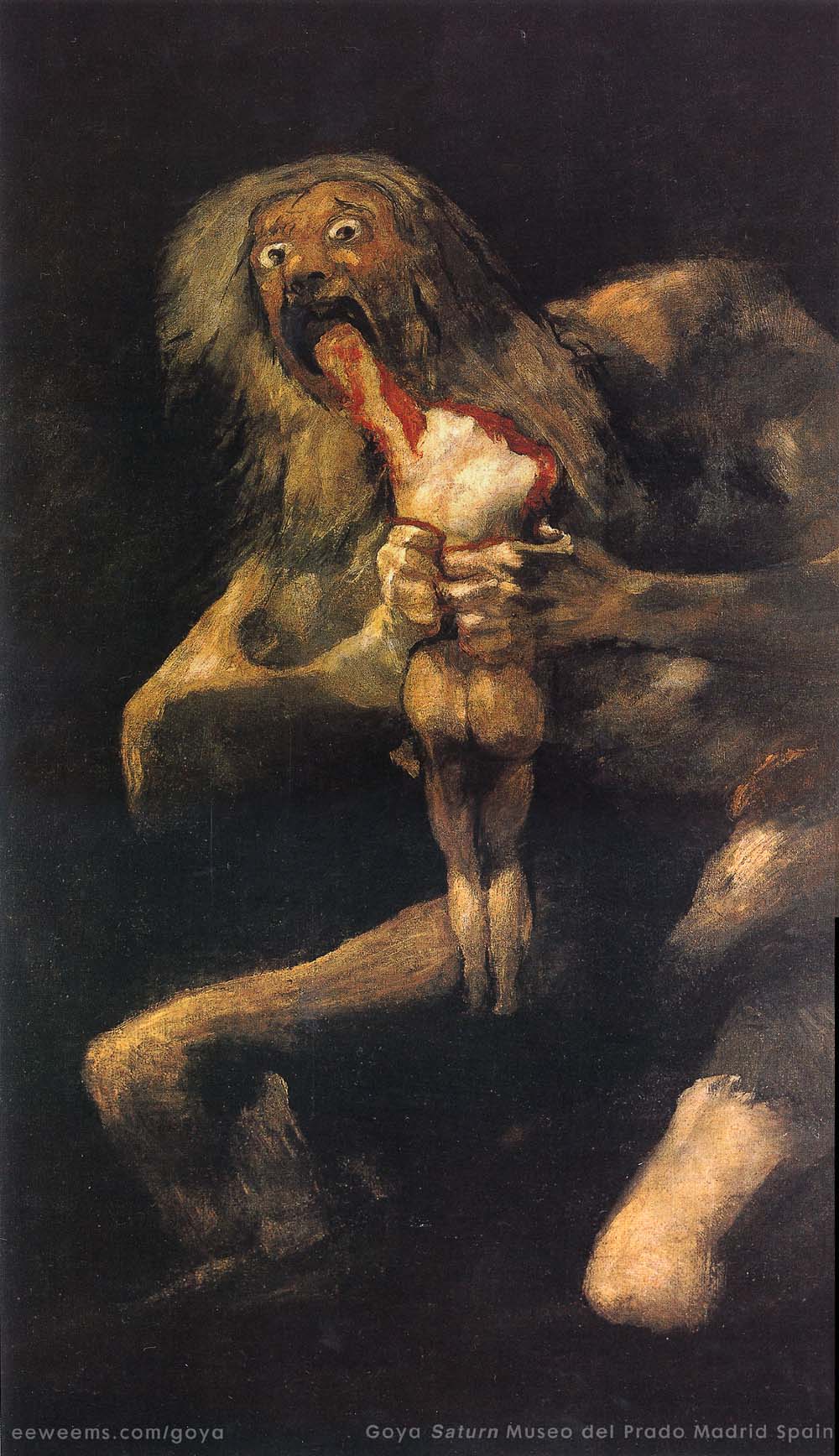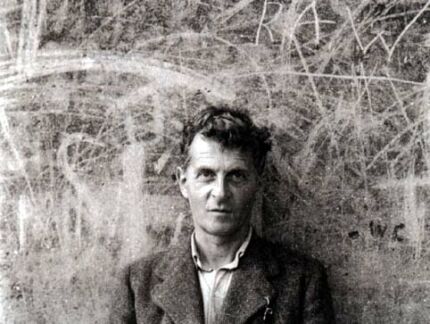
This begins what will hopefully become a regular series of posts on art criticism focused around those pieces with specific applications to our ongoing investigation of sleep-eating. Today’s selection, Saturn Devouring His Son, was only the most obvious and disturbing of a large collection we plan on glossing.
Francisco Goya’s overeager biographers are quick to point out that the artist’s diminishing eyesight and growing isolation at the end of his life contributed to the gloomy oeuvre of his later work. I am quick to point out that the dude was painting depressing shit his whole life, and that if anything changed when he went blind it was only a matter of degree.
What I do know about is the painting itself, and although it is impossible to determine premeditation from it, Goya does leave us with substantial clues as to its interpretation. The original myth has Saturn assured of his children's eventual usurpation of his role. Thus motivated, he eats them in order to prevent his eventual downfall. Samuel Beckett seems to substantiate Saturn’s concerns when he says, “there is no hope, for everyone is a parent.” And, yes, that is a pun: Beckett was fond of them.
In defense of Erik Weems’ position, there is something jarring in Saturn’s expression; namely, he does not look on his victim (his son) but gazes past him and out at the audience. The resulting experience (for the viewer) is the impression that Saturn is more interested in us than in the son he is devouring.
The act of cannibalism is often referred to as “primal,” or, alternately, “savage.” These are both words, coincidentally, that were used in a recent Cosmopolitan article that heralded fucking against a wall as the greatest sexual position. On the one hand is the unthinkable crime: the familial betrayal of protective father against dependent son--like Abraham raising the axe above Isaac’s head; yet made even worse through the act of feeding. On the other hand is the thrilling sexual act, in which you are encouraged to claw at one another and scream in order to heighten the “primal” and “savage” enjoyment.
The disturbing point is that in the Cosmo-approved fucking there is a piece of Saturn Devouring His Children. The desires are crisscrossed: the perversion of food-lust has the meat of the ram transubstantiated into the helpless Isaac; the wall-fucking transforms procreation into mock-violence. Notice also how in the media food is frequently sexualized and vice-versa—not just in women’s magazines, but even things as (seemingly) harmless as advertisements for frozen pizza.
Death Mask and I have provided plenty of evidence already describing how sleep-eating connects with a distant past in which desires existed at their “primal” geneses. That is not to say that this “time” ever existed, but that it exists qua universal point of intersection of all human desire. This point of universal desire, of the excess of all possible satisfaction, exists dependent on the fact that it is impossible i.e. that it can never be symbolized or dominated by interpretation. Because it resists our efforts to subjugate it we strive towards it with stupid and blind stabs in the dark; we fuck against a wall or eat an entire frozen pizza while sleeping or watch Spielberg movies about the Holocaust. These efforts, however pleasurable in the short term, continue to deny us access to that point of original (terrible) joy. Instead we get only glimpses, only tiny crumbs off the enormous Whole.
Here, in Goya’s painting, rests the impossible Whole. It stares us in the face because it already knows us—knows us like it knows its own children.










